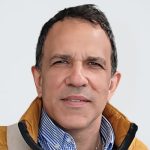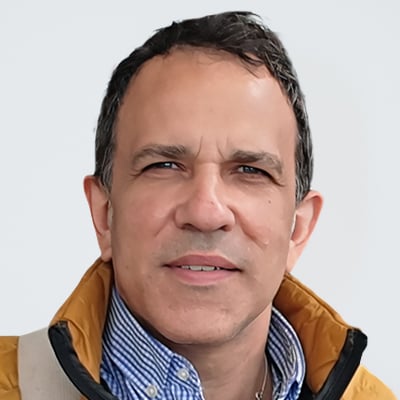
Early identification of these patients allows specific measures to be taken to improve their general health.
The objective is for dental clinics throughout Spain to adhere to this initiative

The first results of the Promosalud program have been presented this week and with what it intends facilitate early detection in the dental consultation for diseases such as diabetes mellitus or high blood pressure (HTN), with the consequent referral of suspected cases to the reference doctors. Early evidence indicates that dental consultations could identify more than a third of cases of hidden high blood pressure and up to half of prediabetes/diabetes undiagnosed.
This project, designed by the SEPA Foundation of Periodontics and Dental Implants, account with the strategic support of the oral health expert company Dentaid. And it is endorsed by different scientific societies in the field of Dentistry and Medicineas well as by the General Council of Dentists of Spain and various professional associations.
One year since its launch, the main work has focused on dissemination among the country’s dental clinics, carrying out training actions for professionals from the participating centers. «After these necessary and preliminary steps, now is when we are really beginning to document both the good reception that the project is having among the dental clinics of our country and glimpsing the enormous possibilities that are opening up to us in the detection of such important and frequent diseases. such as diabetes or high blood pressure, as well as promoting oral and general health from the dental office,” highlightsl Dr. Miguel Carasolcoordinator of PromoSalud.
First results
At this time, as reported Dr. Eduardo Montero, professor at the Complutense University of Madrid (UCM) and coordinator of PromoSalud data analysis «there are nearly 1,500 clinics that have signed up to the initiative, and can now proceed to analyze the data of more than 700 patients». The results, as indicated, “show the relevant role that the dental clinic can play in screening patients with high blood pressure or prediabetes/diabetes not previously diagnosed.”
Although they are still estimates, preliminary data allow us to predict that between 30 and 50% of undiagnosed cases of both pathologies can be identified. “The impact in terms of public health of these findings is immense,” says the Dr. Eduardo Monterosince “the early identification of these patients makes it possible to establish preventive and therapeutic measures that avoid the complications and adverse effects of these diseases, ultimately including the mortality associated with both pathologies. Furthermore, according to this expert, “the impact in economic terms would be tremendous, as has been observed in other countries both in public health systems and based on data from private medical insurers».
The detailed analysis of the first observations made in 733 patients reveals that in 37.2% of the cases values of undiagnosed HBP have been recorded (systolic blood pressure ≥140 mmHg and/or Diastolic blood pressure≥90 mmHg). Similarly, the percentage of patients potentially with prediabetes or diabetes was 4% and 3%, respectively, based on the FindRisc questionnaire and outpatient determinations of glycosylated hemoglobin (HbA1c). These data, as interpreted by Dr. Montero, “they are especially
striking and transcendental, because the percentage of undiagnosed diabetes in the Spanish population (according to the [email protected] study) is estimated at approximately 6%, that is, half of these cases could be screened at the dental clinic. .
Currently, in Spain, 40% of people who suffer from hypertension are unaware of their condition., and it is estimated that there are 15 million adults with high blood pressure. There are also more than 5 million people with diabetes, of which 45% are unaware that they have it, that is, two million three hundred thousand people.
50% of people visit a dental office once a year and, however, many of them do not go to their doctor. Therefore, as indicated Patricia Antonresponsible Dentaid National Medical Area, “the dental office is a place of health promotion, where certain pathologies can be detected early.” For Dentaid, he adds, “prevention and work in clinics to improve early detection data is completely aligned with our purpose, which is to promote and improve the oral health of people at all stages of life, taking into account, also, that this impacts general health.
It’s just the beginning
The collection and detailed analysis of information derived from the hundreds of patients expected to be registered in the coming months may have, in the opinion of the promoters of this initiative, great clinical and socio-health relevance. For this reason, the president of Sepa, Dr. José Nart, considers that “it is time for dental clinics and the entire oral health team (dentists and hygienists) to begin to act as health centers and professionals in the broadest sense of the term.” On the one hand, it is believed that they can be essential to promote healthy lifestyle habits (such as, for example, cessation of smoking habit, promote physical exercise and inform about healthy eating); But, in addition, it is committed to encouraging, optimizing and expanding its role in caring for health problems that patients may present and that have not been previously diagnosed.
Due to its complexity and its ambitious objectives, the practical application is now beginning to bear its first fruits and allows a first assessment to be made by those responsible, highlighting “the very good acceptance of the project, which is in very good health.” indicates Dr. Montero, who emphasizes that “the objective is to make it part of the usual modus operandi of all dental clinics in Spain.” For this reason, he adds, “we continue working on disseminating it and signing agreements with professional associations.”
And, thanks to excellent teamwork, “numerous professional associations of dentists have been able to join the initiative,” he reports. Dr. Montero, although “our intention is that eventually all of them do it and, not only that, but that the clinics truly incorporate it into their usual work protocols in daily practice.”
Furthermore, the international translation of this protocol designed by Sepa experts is also considered viable and feasible. On trial by Dr. José Nart, “We are sure that this protocol is perfectly scalable internationally.” In fact, as indicated, “there are multiple scientific societies from countries in both Europe and Latin America that have shown interest in this initiative.”

